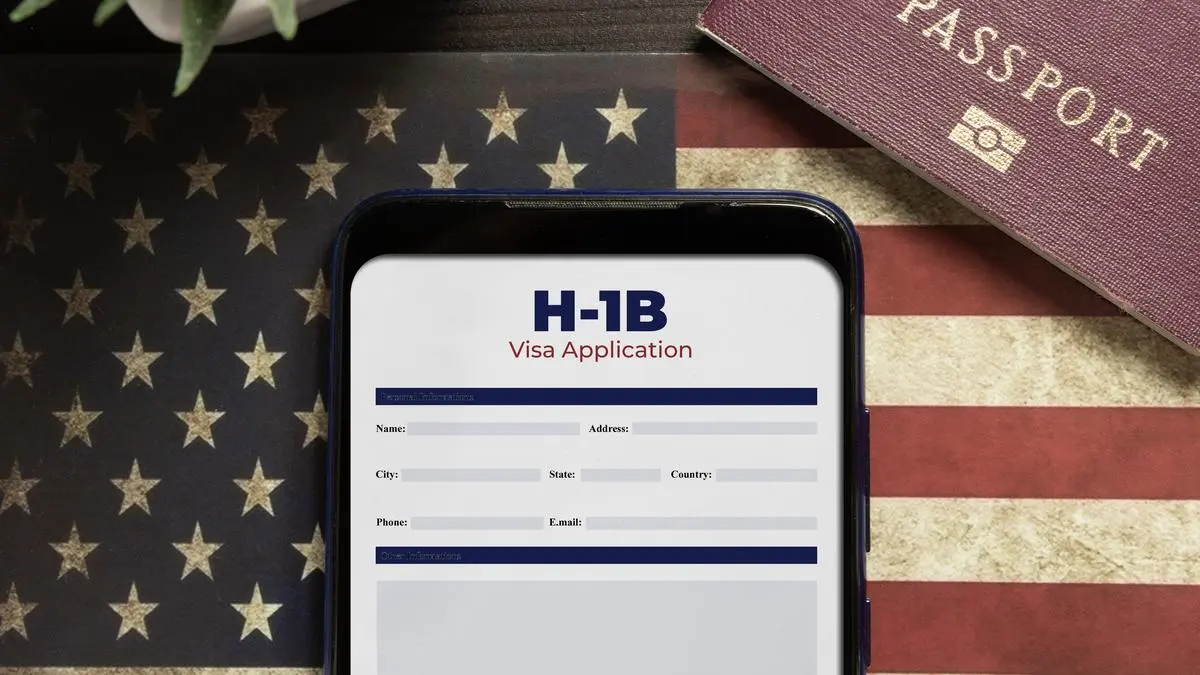By Sindhu Hariharanja
Copyright thehindubusinessline

The new $100,000 fee on fresh H-1B applications has increased anxiety levels among US clients of technology companies in India and elsewhere, fearing the effect of it on their projects and the level of disruption with which they would have to contend.
“Even though the $100,000 fee is only on new petitions, clients are already asking if their delivery will be disrupted, if costs will rise, and if their providers have credible alternatives,” said Phil Fersht, Founder, HFS Research.
Large software companies are executing multi-year, multi-million dollar contracts for large US enterprises and corporations, and a good chunk of those working on the projects are non-Americans on H-1B visas.
The uncertainty
“The concern is less about existing visa holders and more about the uncertainty created by the combination of high fees, stricter enforcement and the risk of litigation,” he added.
For enterprises in the US, the challenge is about the skill sets. “I don’t think this is such a salary conversation first and not even a visa conversation. This is primarily a skills conversation. The US has a significant shortfall when it comes to critical skill sets, including artificial intelligence,” said Sanchit Vir Gogia, founder and CEO, Greyhound Research.
Replacing that talent, which comes through foreign workers, will be the challenge for US enterprises. “A large part of their workforce in expert areas like artificial intelligence, biotech and cyber security and all of these PhDs and research scientists are foreign-born,” Gogia pointed out.
According to a Greyhound Research report clients have already started asking harder questions such as how many of the IT companies’ delivery leads are visa-dependent, what percentage of their program will be staffed onshore without risk of sudden cost hikes, the and resilience of their hub strategy if Washington tightens the screws further.
“In a climate where CIOs rank immigration volatility alongside cyber and supply chain risk, providers who cannot answer these questions with evidence risk being written out of renewal conversations,” it said.
Clients of software companies will adapt quickly — either by outsourcing more or by setting up operations in Mexico, Canada, Latin America, or other regions. Whether through offshoring, nearshoring, or opening new delivery centres, they will find practical workarounds, said Poorvi Chothani, immigration attorney and managing partner of LawQuest.
Indian IT companies are likely to renegotiate their contracts with clients with a combination of three mitigating options – sharing the higher cost with the clients or hiring more local talent, higher near-shoring and higher offshoring, said Nuvama Research in a note.
In the near-term it, could affect deals that are currently in progress, which may be delayed or put on hold, the broker firm added.
“The industry has to evolve from a dependency on a visa-fed onsite pyramid to a distributed, resilient, automation-rich delivery network. The model of sending in droves of junior engineers on H-1Bs is over,” said Gogia.
“The immediate development to watch is litigation. Courts may issue an injunction, possibly within days. If no injunction comes — or even if one does — companies now recognise that US policy toward H-1B visas is shifting. This will push them to reevaluate strategies and diversify operations,” said Chothani.
The new fee would be creating a fertile ground for “arguing arbitrary and capricious rule making, unequal treatment, and even trade impact, since it disadvantages sectors dependent on international talent,” said Sonam Chandwani, Managing Partner, KS legal & Associates.
Published on September 21, 2025



